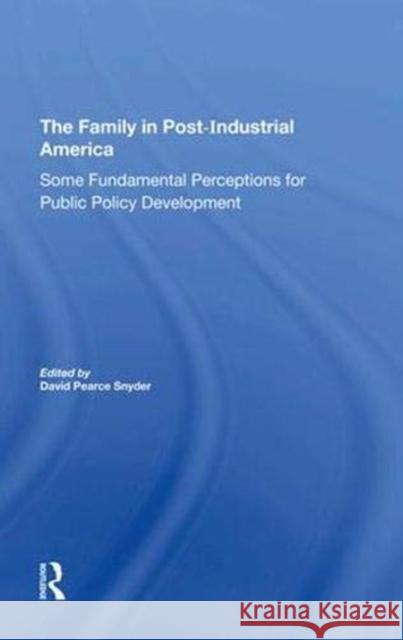The Family in Postindustrial America: Some Fundamental Perceptions for Public Policy Development » książka
The Family in Postindustrial America: Some Fundamental Perceptions for Public Policy Development
ISBN-13: 9780367292065 / Angielski / Twarda / 2020 / 150 str.
The Family in Postindustrial America: Some Fundamental Perceptions for Public Policy Development
ISBN-13: 9780367292065 / Angielski / Twarda / 2020 / 150 str.
(netto: 629,71 VAT: 5%)
Najniższa cena z 30 dni: 629,67
ok. 22 dni roboczych.
Darmowa dostawa!
Traditional public policy toward the family, the authors of this book argue, has produced an array of fragmented mechanical programs in response to specific, perceived "dysfunctions" in family performance. Policy has been biased by a restrictive perception that families unlike the nuclear, two-parent household are either ailing or aberrant. In response to these observations, the authors portray the family as a natural, ongoing, and dynamically adaptive element of Western civilization. They suggest that legislators and policy analysts should view the household as a tangible social and economic asset and an appropriate technology with which a number of tasks (such as child care, education, health, disability and unemployment insurance, social security, and the welfare of the aged) now performed by more complex and costly formal institutions may be better accomplished.











